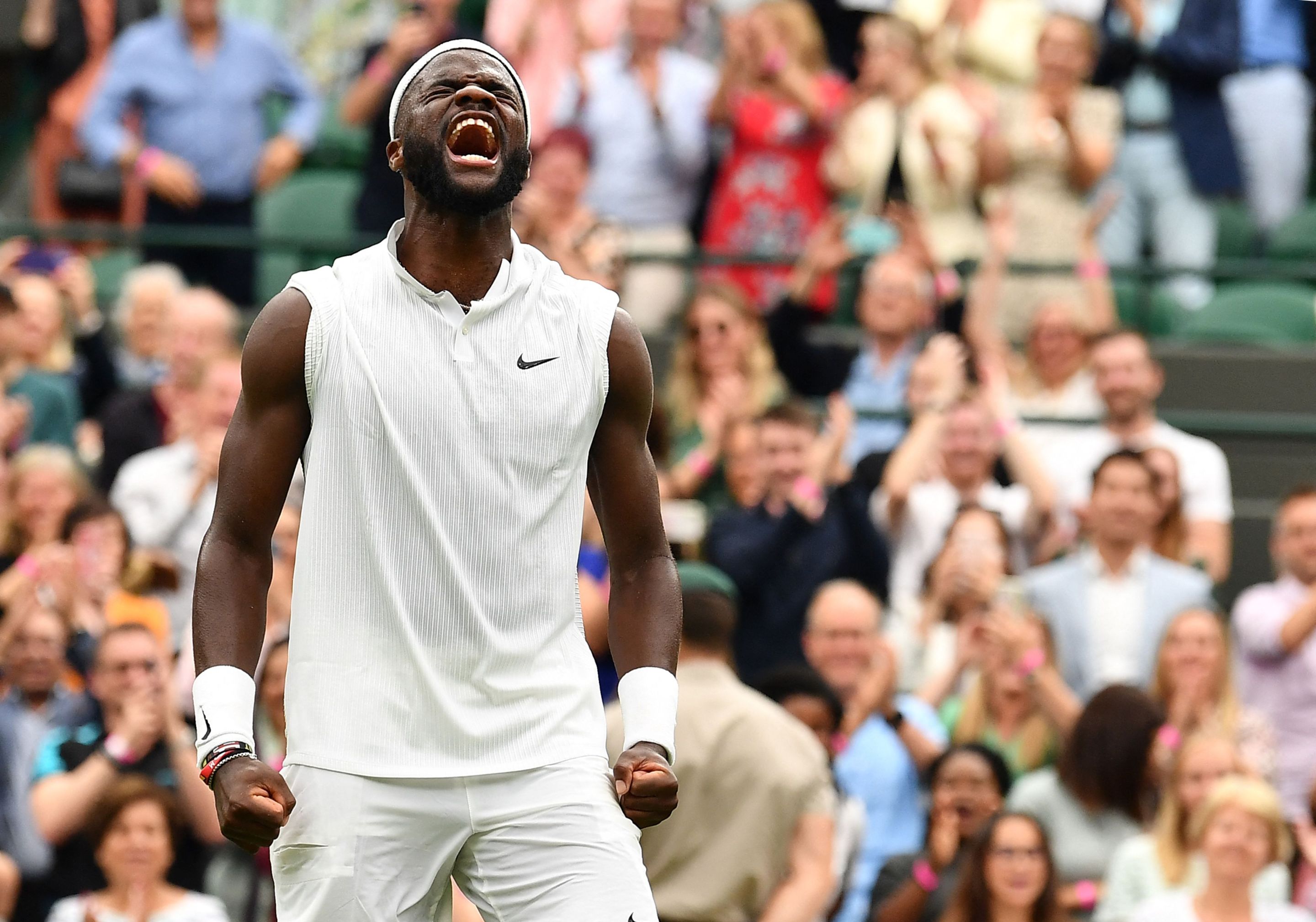Wimbledon is barely two days old and it's already a joyous occasion for any American who enjoys engaging with tennis on purely jingoistic terms, as the USA's Frances Tiafoe and Sebastian Korda—the sons of a tennis center custodian and a Grand Slam champion, respectively—have booted some top seeds out of the tournament.
The first victim of American excellence was No. 3 seed Stefanos Tsitsipas. Last time we saw the Greek on court, he had just lost a crushing French Open final to Novak Djokovic after going up two sets to none; he also lost his grandmother just before the match started. To recover from all of the above, he took two weeks off the tour, rather than playing any tune-up tournaments to get used to the surface change. Then came the climax of the vanishingly (and regrettably) short grass season, Wimbledon, where Tsitsipas arrived with his highest-ever seeding at a major, and a manageable draw, only to seem stuck in a daze throughout his first-round match, which he lost 6-4, 6-4, 6-3. That's a grim result for a 22-year-old who just drew tantalizingly close to getting his first major title over the sport's hegemon. But also: A very happy one for the 23-year-old across the net. All credit to Frances Tiafoe for putting together his tightest match all season.
Sporadically over the last four-odd years, Tiafoe has flashed what looks like top-20 ability, thanks to the funk of his forehand, explosive movement, and an appetite for net rushes. He's had brilliant matches, and encouraging weeks, and has briefly flitted into the top 30, but has yet to do his talent justice over the length of a full season. Now ranked No. 57, Tiafoe played three near-peak sets of tennis to notch his first win over a top-five opponent in 11 tries. He is at his best (and most entertaining) when rumbling up toward the net, leaning into his speed and his willingness to improvise, and he did plenty of that against Tsitsipas, who is 3-3 at Wimbledon across an otherwise prodigious career and would later explain that he was still stuck a clay-court mentality through the first two sets of this match. Tiafoe, for his part, said that grass optimizes his game: “It forces me to play the right way. It forces me to play super aggressive. It forces me to be off my front foot on both sides, it forces me to come to the net, because otherwise you’re vulnerable.” He exploited Tsitsipas's continued struggles on this surface (compact returns of serve, lack of a good slice), strung together a number of clutch points toward the end of the third to offset some late-match anxiety, and completed the enormous upset. A natural charmer and longtime innovator in victory celebrations, Tiafoe showcased his biceps and mimed eating out of a bowl.
Tiafoe showing off those muscles and his breakfast (?!) after beating the 3rd seed, Stefanos Tsitsipas. #Wimbledon pic.twitter.com/FEVUoo55jh
— Tennis GIFs 🎾🎥 (@tennis_gifs) June 28, 2021
On Tuesday it was Sebastian Korda doing the eating, as the 20-year-old American dispatched No. 15 seed Alex de Minaur, 6-3, 6-4, 6-7(5), 7-6(5). The Australian, recently seen taking teetering to its athletic pinnacle, was coming off the best grass-court results of his life, with a title at Eastbourne, and a semifinal appearance at Queen's Club. Having fitted his consistent groundstrokes and tour-best movement to the often-slippery turf, he was about as tuned-up as any player could be for the main event on grass. Yet even if he might be fastest man on tour, de Minaur will never rake in points on grass quite as easily as the 6-foot-5 Korda can at his best. The son of 1998 Australian Open champ Petr, and the brother of LPGA world No. 1 Nelly, Seb Korda bolsters his big-man serve with technically unimpeachable strokes and a general aura of calm. Perhaps thanks to his lineage he was even able to obtain the rare gem American men's tennis prospects were denied for a generation: a backhand. The world No. 50 hasn't played much on grass to date, with only three tour-level matches, all of them at Halle earlier this month, but in that span he had already beaten top players in Roberto Bautista Agut and Kei Nishikori. And before that, he had just won his first tour title on clay in Parma. So Korda had every reason to believe in his powerful and complete game could overwhelm the slight de Minaur at his first-ever trip to the grass court major. Korda was ranked outside the top 200 this time last year, but do not be remotely surprised if he's the top American in men's tennis by next Wimbledon—if not sooner.






